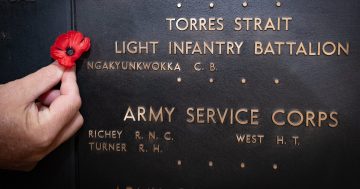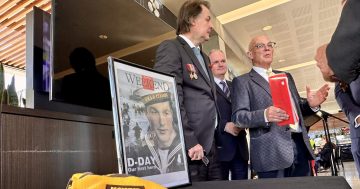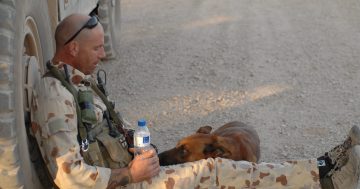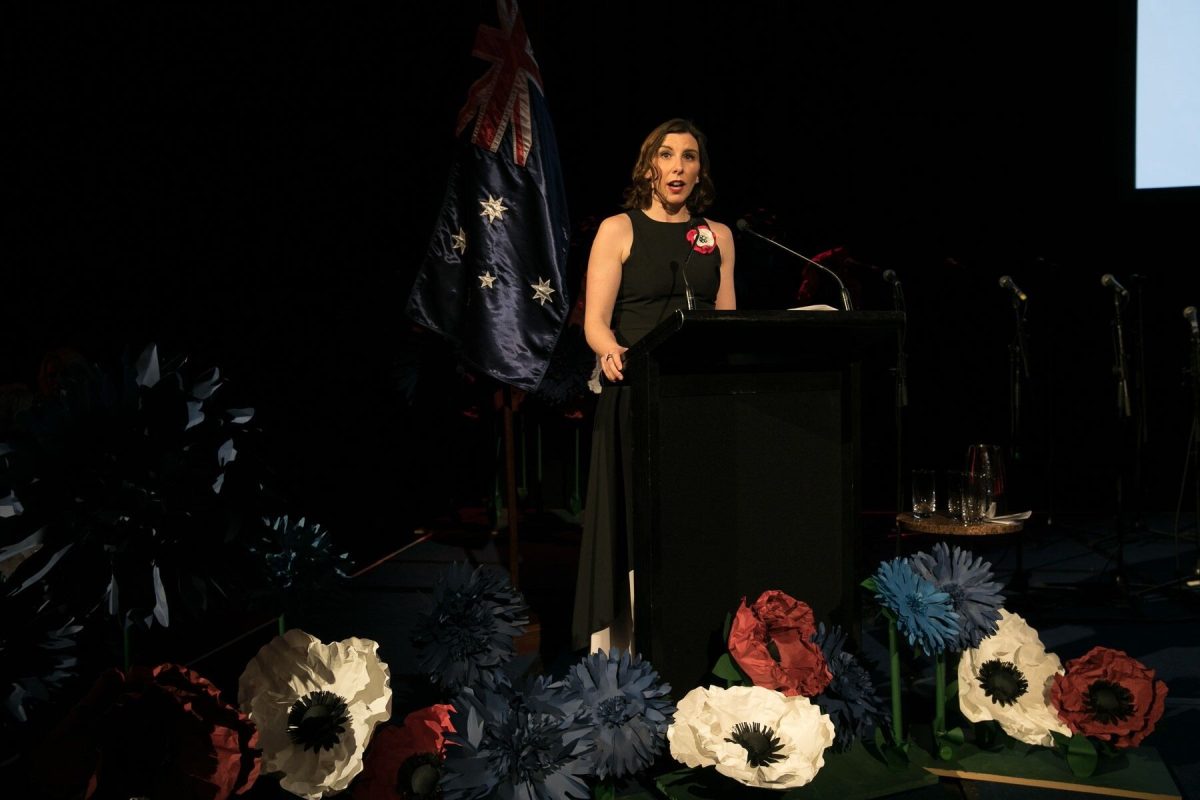
Renee Wilson says widows and families of veterans deserve more support. Photo: AWWNSW.
Today’s generation of war widows suffer as much grief as those who lost loved ones in previous wars, but the challenges they now face are very different.
The second annual War Widows Day, to be held on Thursday 19 October, pays tribute to the war widows of the past and today, and acknowledges the important role they play in Australia’s defence system.
Australian War Widows NSW (AWWNSW) Chief Executive Renee Wilson said despite being the chief mourners of veterans, Australia often did not know or see war widows.
“For years during and following their loved one’s service they have cared for and supported their loved ones. They have sacrificed their own freedoms and opportunities to enable their loved one’s service and to care for them when that service has ended,” she said.
“Following the passing of their loved one, they are often disconnected from the veteran community and family that has formed a large part of their lives for years, or sometimes even decades.
“As a result, some of the widows feel forgotten and isolated in the defence community they were once such a core part of.
“To us, war widows in our community are the families of our veterans. When we recognise them, we recognise the important role of veteran families and shine a light on their experiences and what they give to enable service in the Australian Defence Force.”
Renee said the biggest challenge contemporary war widows faced was that the system that’s meant to support them was largely designed to support ageing veterans.
“As a result, it doesn’t factor in the broader needs of the widow when the veteran passes away,” she said.
“For example, when a veteran is still living, we see families with access to in-home support services, but when the veteran passes, we then see this same service removed.
“We also see time limits placed on services for younger bereaved families which are inconsistent with their needs, and limits on the type of support available to meet mental health and psychological needs.
“In short, veterans are living longer than they did following the world wars. They are now surviving injuries and illnesses that in the past they wouldn’t have, which creates a more complex picture for the families who are caring for them.
“We are seeing the needs of the veteran’s family increase over the lifetime of the veteran and emerge well before a veteran passes but there is currently limited support available to them.”
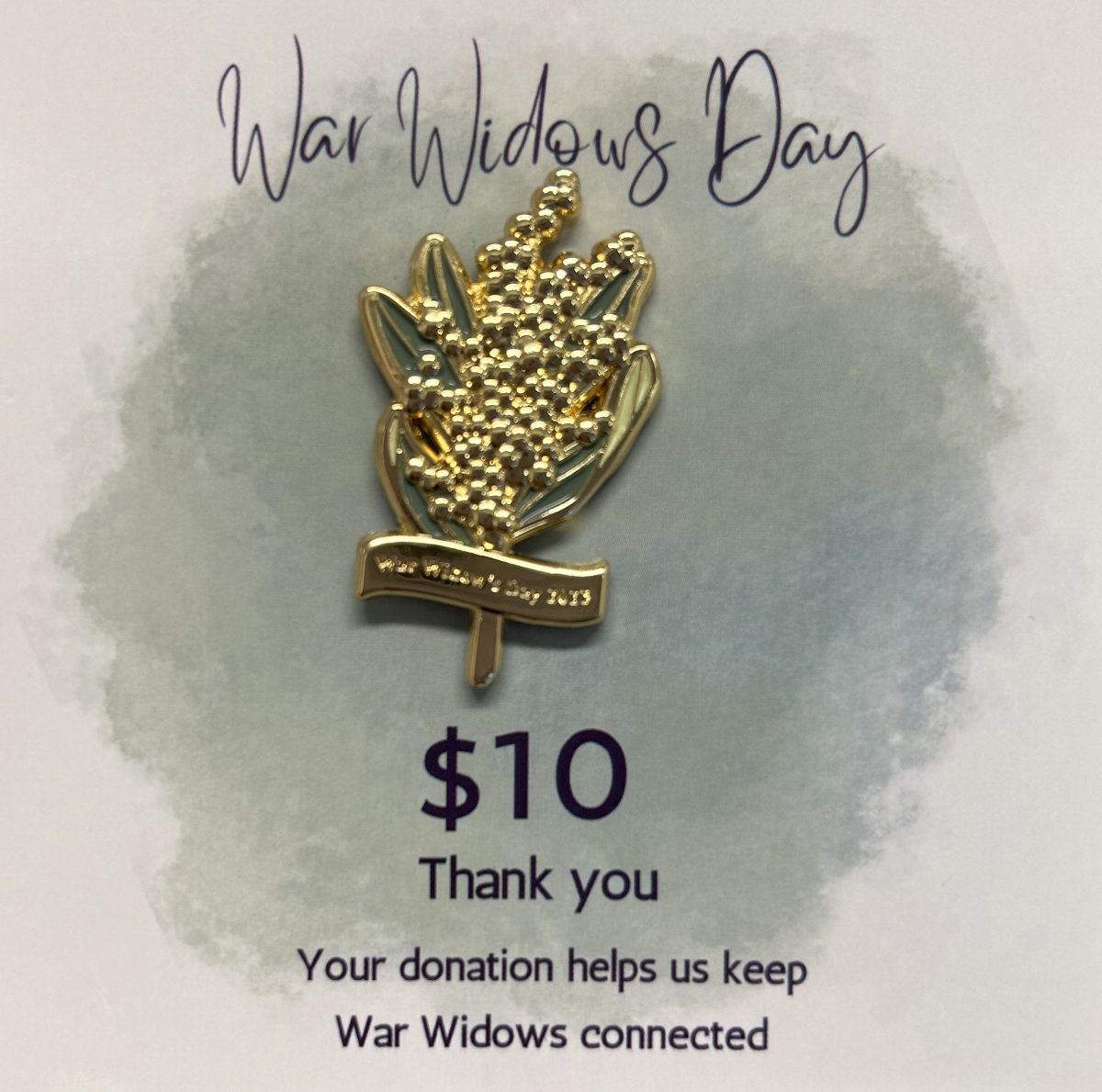
Buying a $10 lapel pin to wear on War Widows Day will help provide support and services. Photo: AWWNSW.
Throughout October, AWWNSW is asking the community to support its annual fundraising campaigns – the Buy a Widow a Coffee and Lapel Pin Fundraiser – to support the 15,000 war widows across the state.
The Buy a Widow a Coffee Campaign allows the public to purchase a virtual coffee for a war widow.
“A large majority of the AWWNSW members are located in regional and rural communities, so this donation will offer them an opportunity to connect with their local War Widow’s social club and enjoy a coffee among friends who have a similar lived experience to them,” Renee said.
To buy a virtual coffee or to make a donation, click here.
The $10 limited-release wattle lapel pin represents Australian resilience, strength, and remembrance. The wattle also is in remembrance of the tradition of World War I, to press and send wattle to the wounded and bury it with fallen soldiers.
Funds raised throughout the month go towards support for war widows through AWWNSW’s friendship line and clubs programs.
“Through these services we are then able to identify widows and families with greater service needs and can respond by providing social work or my aged care interventions, such as psychosocial assessments, service connection and navigation, individual case management or advocacy,” Renee said.
“Directly linked to these streams is our policy work, our big picture advocacy where we raise the voices of widows and veterans’ families, ensuring that they are heard, their needs and experiences are known and understood and service gaps are closed.”
To read more about the work of AWWNSW, click here.
Original Article published by Jen White on Region Illawarra.




